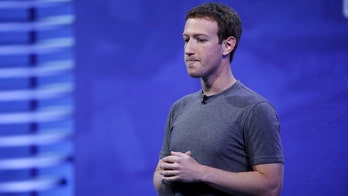CHARLESTON, W.Va. – Flanked by law enforcement officers Thursday, West Virginia Gov. Earl Ray Tomblin vetoed a proposal for a second-straight year that would let people 21 years old and up carry hidden guns without permits or training.
Dozens of police officers and sheriff's deputies filled the governor's lobby as the Democrat nixed the bill over their safety concerns. Tomblin cited the same worries when he vetoed a similar bill last year.
Unlike last year, though, the GOP-led Legislature has ample time to override Tomblin's veto and cement the bill into law. It only takes a simple majority to override policy vetoes in West Virginia, often making them a symbolic gesture.
The National Rifle Association quickly called for lawmakers to start the veto override process, which the House will do as soon as Friday, said House spokesman Jared Hunt. The Senate expects no delays in doing likewise, said Senate spokeswoman Jacque Bland.
Tomblin used the news conference to counter the gun lobby's contention that only county sheriffs opposed the bill because they would lose money from concealed carry permit purchases. Officers ranging from the State Police to university police were on hand. The event also was a show of force to a Legislature that can render Tomblin's decision moot.
"Ladies and gentlemen, I urge you to just look around this room for a moment, and see that law enforcement are concerned about this bill," Tomblin said.
Currently, it's legal in West Virginia to carry a gun openly — in a holster, for instance — without a permit.
The bill would let people conceal guns in public without permits, such as by wearing a coat. People ages 18 through 20 would need a permit and training with live firing.
Only a handful of states don't require concealed carry permits.
A $50 tax credit would be available for gun training at a total cost of up to $3 million to the state. Tomblin's veto message called the credit "ill-advised and unclear."
Everytown for Gun Safety, a group funded by former New York City Mayor Michael Bloomberg, has mounted a campaign against the bill, including billboards, radio, digital and print ads and polling that widely favored the group's position.




